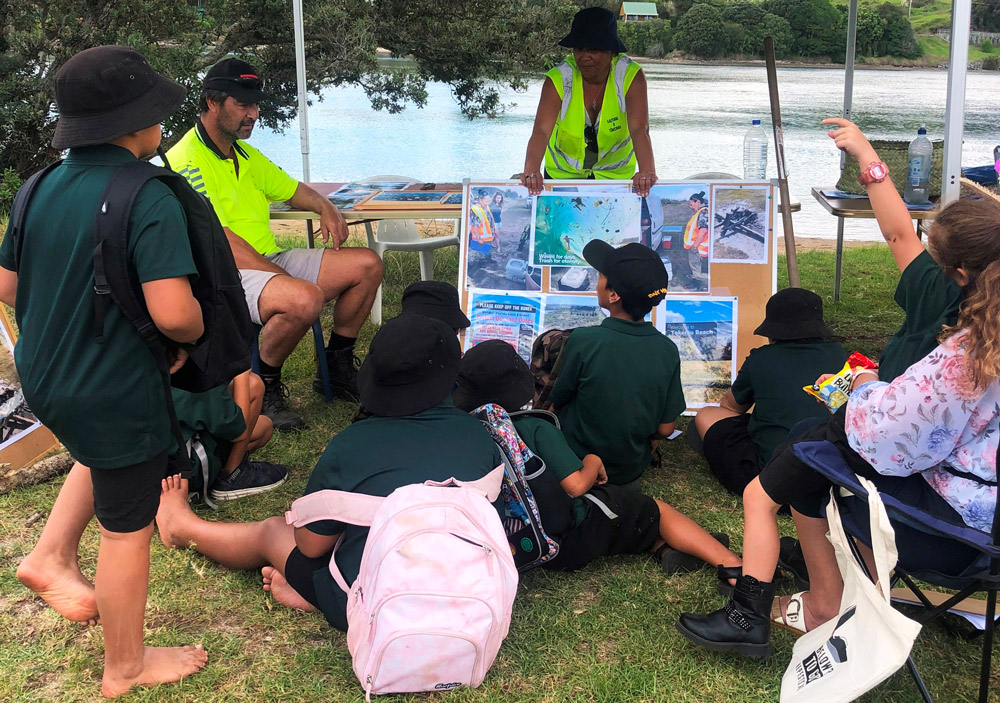Story
Kaitiaki rangers help protect beaches through kōrero
Kaitiaki rangers found plenty to keep them busy on and around Far North beaches this summer, as they helped educate visitors and locals about respecting the coastal environment.
It’s the fourth summer these rangers have patrolled popular beaches, talking to people about issues such as freedom camping, driving on beaches and in dunes, fire bans, rāhui and more.
This season, three Ngāti Kahu rangers representing Haititaimarangai Marae and Parapara Marae were out and about from Christmas to mid-February, and over the Easter weekend. They covered the Karikari Peninsula and Taipā. Funding for the mahi came from NRC and Far North District Council, while the Department of Conservation supplied a vehicle and supervised the rangers.
Ranger Nina Raharuhi has been with the programme since the 2018-19 season. She says before COVID-19, they had to educate overseas tourists afresh each year about how to freedom-camp responsibly – checking their vehicles have self-contained toilet facilities and explaining about not using soap in freshwater lakes.
But although those visitors have been largely absent since early 2020, locals and regional visitors often use their vehicles in a way that harms the beach and dunes.
“People are ignoring signage and doing what they want with their motorbikes and quad bikes, whether it’s on the beaches, in the dunes, or up on our sacred maunga,” she says.
“Rubbish was also worse this year – we saw overflowing rubbish bins, and the dumping of rubbish bags in public reserves and on roads.”
Being a visible presence on and around the beach is essential for getting the message across that these behaviours are harmful to our precious coast environment and Nina says the communities have gotten right behind the programme.
NRC Coastcare coordinator Laura Shaft says the programme can be adapted for other areas of Northland, and she hopes that will happen as funding allows.
“Employing rangers through local marae is really valuable because they’re people with mana and knowledge of the local area. That helps when they’re talking with people, as sometimes the conversations can be difficult.”
NRC is very pleased with the programme’s success, she adds. “It is so valuable to have rangers on the ground. We’ve seen a decrease in incidents when kaitiaki are working, and many compliments about the project. Our beaches and dunes are a big part of what makes Northland such a great place to live in and visit, and we’re keen to help more communities play a part in protecting them.”
Being part of the programme also gives rangers opportunities to gain new skills. Nina explains they trained in outdoor first aid, situational safety and tactical communications, and 4WD work so they could safely pull stuck vehicles out of dunes.
“I was overwhelmed by, and appreciative of, the training we received,” says Nina, who also works as an artist in mahi raranga (traditional weaving).
“That gave me the opportunity to progress in the environmental field. I got to work with archaeologists in the dunes learning how to identify middens, and learned about our native flora and fauna. From that experience, I took on the role of cultural monitor at our marae. That pilot programme [in 2018/19] has opened so many doors, and I know it has for my fellow rangers too.”

Kaitiaki rangers in action at Taipa.
